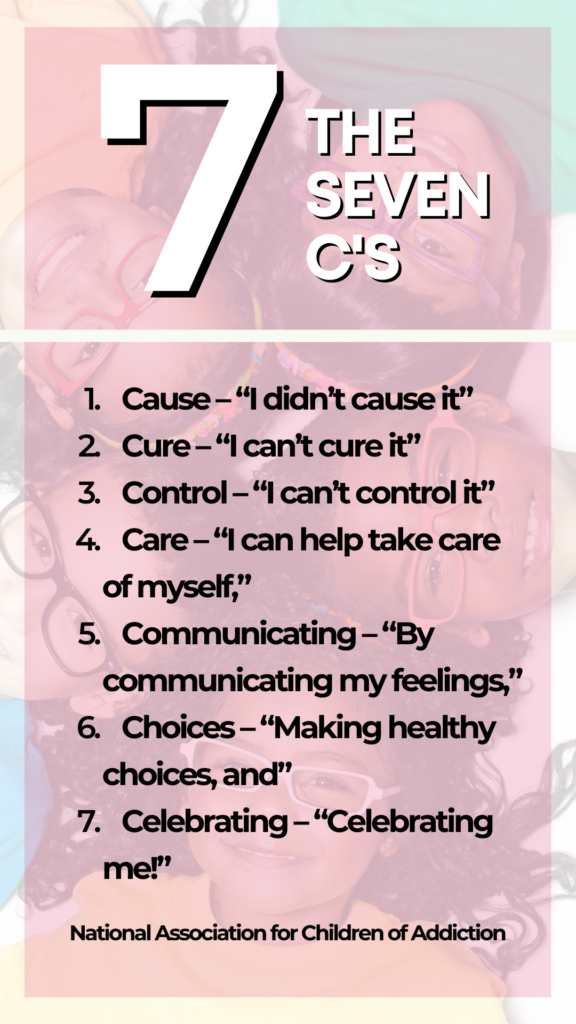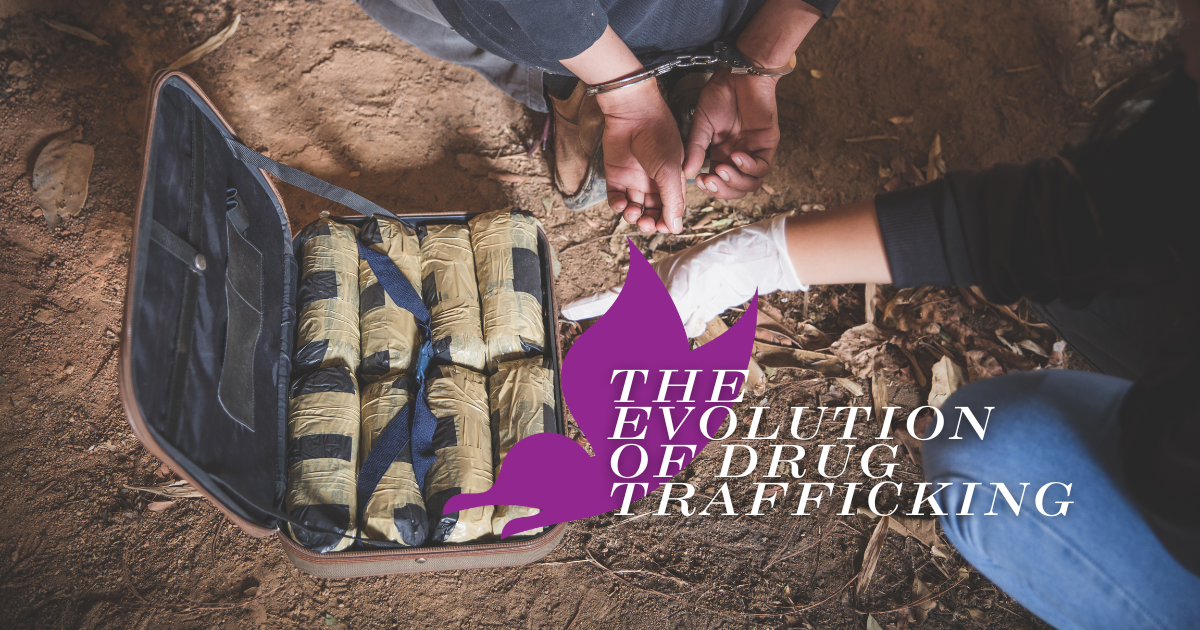Knowing how to explain addiction to a child can be tricky. Drug and alcohol addictions don’t just affect one person. They impact entire families. If you suspect that a child might be affected by a parent, guardian, loved one or friend who has a substance use disorder (SUD), there are ways you can help them cope.
You could provide the comfort and understanding they need by talking about their thoughts and feelings. They might be dealing with neglect, abuse or other forms of childhood trauma that could make it more likely for them to turn to drugs or alcohol later in life.
If you choose to explain addiction to a child, they might have tough questions that require you to do some research on the subject. They might ask why someone is using drugs or wonder if the person is “bad.” However, you don’t have to be an expert on addiction to make a difference in their lives. By having an open and honest conversation about the disease and staying involved in their lives, you can help them avoid a greater likelihood of relying on drugs or alcohol to deal with tough situations.
Studies show that children who’ve grown up in a home where someone has a drug or alcohol addiction are more likely to use substances as a way to deal with stress.
Here are six tips to help you explain addiction to a child:
1. Educate yourself before you start the conversation
Whether you’re a parent recovering from a drug or alcohol addiction or a loved one who knows a child with an addicted parent, gather all the facts you can about addiction to prepare yourself and show that you’re a good source of information on the subject.
Children are naturally curious and might put together their own ideas about addiction. Some might even blame themselves. However, you have the ability to create an environment where they can rely on you for helpful information about how addictions start or why substance use is much more dangerous for young people and adolescents.
Even if you don’t have all the answers, knowing where to find useful information can help you become a guide that steers children away from substance use and the potential for developing an addiction later in life.
2. Make the conversation age-appropriate
Many experts say it’s never too early to talk to children about drugs and alcohol. However, it’s possible to confuse, overwhelm or even upset a child whose brain is still developing and doesn’t yet have the ability to understand complex information like the nature of drug or alcohol addiction. Terms like “substance use disorder” or “disease” might sound complicated or scary.
However, telling them that their parent or a loved one isn’t feeling well and needs extra care to get better, for example, could be just as effective. Therefore, it’s important to know your audience when explaining addiction. What you say to a child six-to-10 years old won’t sound like the conversation you have with a pre-teen or teenager.
Use easy-to-understand terms instead of industry terms and language. Keep in mind that you might also be talking to a child about their parent’s or your own addiction, so try using terms that humanize the person and shifts the focus to the addiction itself. Here’s a blog we wrote about healthy ways to talk about people with addictions.
3. Use resources
We wrote a blog about age-appropriate resources you can use to teach children about addiction. Keep in mind that these resources should aid the conversation, not replace it. Talking helps them explore their thoughts and feelings.
“These resources aren’t designed as a replacement for having conversations with your child about addiction, rather an opportunity to explore the topic more together and encourage them to ask questions and talk about their feelings,” wrote the Alcohol and Drug Foundation (ADF), who put together a great list of illustrated children’s books that can help you explain addiction to a younger child.
Here are links to the ADF’s recommendations:
- The Blue Polar Bear – an illustrated book for 5-to-7-year-olds who are living with parents struggling with mental health conditions combined with drug or alcohol issues. Click the following link for a free download from the NSW Government website.
- The flying dream – an illustrated book for 8-to-12-year-olds who are living with parents struggling with mental health conditions combined with drug or alcohol issues (dual diagnosis). Click the following link for a free download from the NSW Government website.
- A terrible thing happened – an illustrated children’s book aimed at 4-to-7-year-olds that puts the emphasis on the child’s experience rather than the “terrible thing” itself.
- Critters cry too – an illustrated children’s book aimed at Kindergarten-through-5th grade that explains addiction and associated feelings in a way that’s easy to understand.
- Addie’s mom isn’t home anymore: addiction is scary-especially when you don’t know what it is – an illustrated book for 8-to-12-year-olds about Addie’s journey to answer the question – what is addiction? – told through her own eyes and from her perspective.
- Daddy goes to meetings – an illustrated book for young readers that explores the positive change in a family’s life after “Daddy” enters recovery with a surprisingly light touch for a sensitive subject.
- Floating away: a book to help children understand addiction – an illustrated book for 8-to-12-year-olds.
- Timbi talks about addiction: helping children cope with a parent’s addiction – an illustrated book to help children learn about addiction. It’s not their fault and their emotions are valid.
- The tail of the racoon (Part I, Secrets of addiction; Part II, Touching the Invisible; Part III, Departures) – all part of “The Sign Tracker Trilogy,” an illustrated series about the adventures of raccoons in the Great Forest, whose actions and experiences are designed to improve our understanding of how substance use turns into drug addiction.
Sesame Street, a popular children’s show, also crafted a video you can show. In it, Elmo’s dad does a good job answering Elmo’s questions about a friend’s parent’s addiction. Watch the full conversation below.
4. Release all expectations
Talking about addiction can be difficult and stressful for anyone, especially a child. Therefore, be sure that you and the child are relaxed and comfortable. You can do this by entering the conversation without expectations to help avoid feelings of disappointment and sadness.
“When you have a strong reaction to something, take a deep breath and ask yourself a single question: what’s going on for the other person,” Peter Bregman, CEO of Bregman Partners, wrote in a 2011 Harvard Business Review article about simple communication mistakes. “In other words, don’t start from where you are, start from where they are.”
Remember when we said to try and gather as much information about addiction prior to the conversation? That may include learning that the child’s parent is currently enrolled in drug and alcohol rehab or living in a sober living house, for example. In either case, be aware that you may be met with initial feelings of surprise or denial at knowing this type of information if you’re not a family member. Be patient and invite empathy and consideration of the child’s feelings into the space.
@landmarkrecovery #greenscreenvideo Kids understand more than we think!! #toughconversations #kidsaresmarterthenyouthink #kidsgetit #kidsseeyou #hardconvos #talkingitouthelps
5. Ask questions and encourage children to talk about how they’re feeling
Having a conversation about addiction can be a tall task, but it doesn’t have to be one-sided. The child will likely have thoughts and feelings they wish to share. Encourage them to open up about what’s going on in their mind so they know and understand that it’s a safe environment to explore their thoughts and feelings. It’s not a good idea for them to feel alone in their thoughts.
Answer all their questions openly and honestly. Children have different perspectives, so try to understand where they’re coming from and clear up any confusion or preconceived beliefs they might’ve held before the conversation.
6. Remind children that the addiction is NOT their fault
In her book “Childhood Disrupted,” author Donna Jackson Nakazawa writes the following about children and self-blame:
“As psychologists have long known, when kids feel that something is being kept secret, when no one speaks to them about what’s happening or why, but they know that something feels wrong, they assume that it must be bad, and that it must be about them,” Nakazawa writes on page 67. “If no one is talking about it, that must mean it’s their fault, it must mean that they are the one who is bad.”
The Seven C’s for children of addiction
To help children understand that they’re not to blame for a loved one’s addiction, the National Association for Children of Addiction (NACoA) recommends seven phrases known as the 7 C’s that adults can teach children to help them cope. The 7 C’s include:
- Cause – “I didn’t cause it”
- Cure – “I can’t cure it”
- Control – “I can’t control it”
- Care – “I can help take care of myself,”
- Communicating – “By communicating my feelings,”
- Choices – “Making healthy choices, and”
- Celebrating – “Celebrating me!”
Help a child cope with addiction
The goal of explaining addiction to a child is to help them understand that they’re not to blame and it’s ok to have feelings and questions about the subject. If you or a loved one need more help having this conversation, call 888-448-0302 to speak to an experienced team member at Landmark Recovery. Our dedicated admissions consultants are available 24/7 to answer questions on a confidential phone line.
Visit our locations page to find an addiction treatment center near you.

Choose Recovery Over Addiction
We're here 24/7 to help you get the care you need to live life on your terms, without drugs or alcohol. Talk to our recovery specialists today and learn about our integrated treatment programs.








